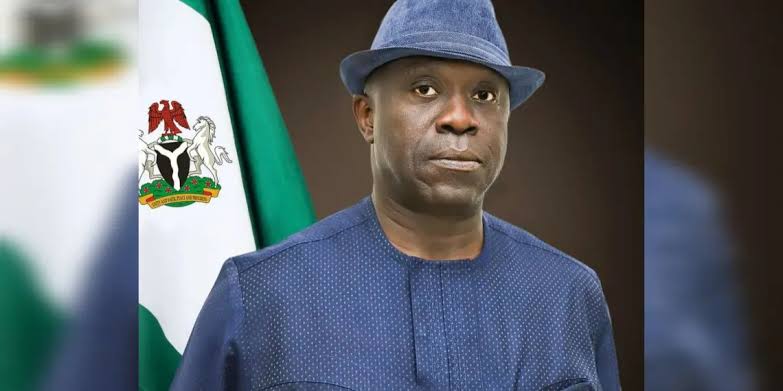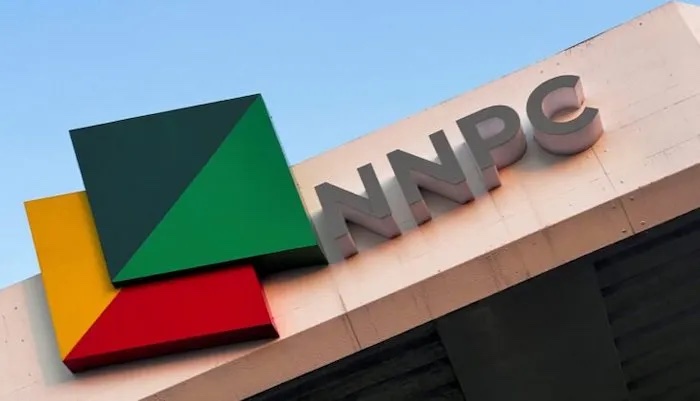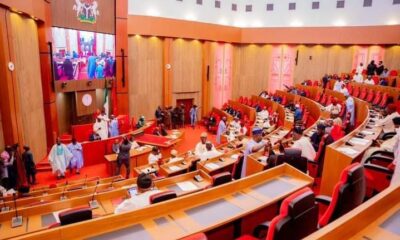Business
FG Supports Ex-Agitators With N1.5B Cooperative Program

On Wednesday, Major General Barry Ndiomu (retd.), the Interim Administrator of the Presidential Amnesty Program, announced that the Federal Government has allocated N1.5 billion to assist a cooperative initiative benefiting 30,000 ex-agitators in the Niger Delta region.
The goal of the program is to promote the self-sufficiency of the militants and reduce their reliance on the monthly stipends of N65,000.
Major General Ndiomu revealed that the PAP Cooperative Society Limited has been launched in Abuja, and an initial deposit of N1.5 billion has been made at Providus Bank to facilitate the implementation of the scheme.
The program aims to allocate N500 million on a monthly basis to provide ongoing support to the ex-agitators. Presently, the cooperative scheme is exclusively focused on benefiting the former agitators
He expressed optimism that as the funds increase, they would expand to impacted communities and that the scheme would also benefit several people across the region.
He said “We on our part, will continue to support the cooperative with additional finance and the plan going forward is to provide a minimum of N500 million every other month to sustain it.
“The whole essence is to discourage reliance on the monthly stipends which you will all agree with me has brought the culture of indolence and is not in our best interest. So we have decided that rather than give them fish we should teach them how to fish,” he added.
Ndiomu emphasized that the primary objective of the initiative is to establish an alternative economic development scheme that would offer ex-agitators a sustainable and more prosperous source of income to foster the socio-economic growth of both their communities and the overall region.
Ndiomu further outlined that the ex-agitators themselves would take charge of managing the cooperative scheme, while the PAP office, along with its consultants, would closely supervise its operations.
He revealed that an Advisory Board, led by Justice Francis Tabai from the Supreme Court, would oversee and monitor the program.
Ndiomu clarified that the cooperative would collaborate with PAP beneficiaries to identify business opportunities that align with their respective skills to establish and develop these ventures into profitable enterprises.
Additionally, Ndiomu highlighted that the beneficiaries would receive technical and business development support to help them establish and sustain viable businesses to empower them to meet essential needs, generate employment opportunities, and contribute to the economic growth of the Niger Delta region.
The Interim Administrator, in his address, disclosed that the PAP’s focus would be on rice production as they have entered into a Memorandum of Understanding with communities to facilitate the development of rice farms.
Furthermore, he stated that discussions are underway with the International Institute of Tropical Agriculture to explore potential collaborations in this area.
The ultimate goal is for the ex-agitators to transition into entrepreneurs, and it is anticipated that the monthly stipends of N65,000 will be gradually phased out as they become self-sufficient.
One of the ex-agitators, HRM Henry Ekes, expressed his appreciation for the scheme, acknowledging that many of them had been concerned about their future prospects since returning to the creeks and engaging in disruptive activities was not a viable option.
Ekes highlighted that several other agitators were also in favor of the scheme, and he consistently encouraged them to view it as the path towards self-reliance.
He emphasized the significance of embracing the program, noting that its success would not only be advantageous for the ex-agitators themselves but would also bring benefits to the Niger Delta region as a whole.
Business
Marketers In Anguish, As Dangote, NNPC Ltd War Drag Price To N880/litre

The pull of market forces which moved the hands of the Nigerian National Petroleum Company Limited (NNPC Ltd) to reduce the price of Premium Motor Spirit (petrol) to N880 per litre in Lagos and N935 in Abuja appears to be a source of torture to independent markets.
Biztellers reports that the latest price review on Easter Monday saw NNPC retail outlets in Lagos drop from N925 to N880, while those in Abuja adjusted from N950 to N935.
The NNPC Ltd’s price reduction came barely a week after the Dangote Refinery lowered its ex-depot price from N865 to N835 per litre.
ALSO READ: BREAKING: Again, Dangote Cuts Petrol Price To N835 per Litre
In addition, the $20bn refinery also directed its partners like MRS, Heyden, and Ardova to sell a litre of petrol at the rate of N890 instead of N920 in Lagos, N900 in the South West, N910 in the South-South, and N920 in the North East.
Consumers can smile because with the reaction, the NNPC Ltd’s new price in Lagos is N10 lower than what the Dangote Refinery is selling at, which might lead to another reaction, as the price war between the two companies.
Though some NNPC Ltd’s retail outlets were observed selling at the old rate in Lagos, it was gathered that they were given the liberty to exhaust old stock before adjusting to the new prices.
Market sources are of the view that the current price war was ignited by the Federal Government’s implementation of the Naira-for-crude policy.
Business
Gold Prices Hit Historic $3,500 Amid Trump Tariffs, Fed Tensions
Gold soared to a record high of $3,500 an ounce on Tuesday, as mounting fears over a potential U.S. recession and escalating tensions between President Donald Trump and the Federal Reserve drove investors toward the traditional safe-haven asset.
The precious metal briefly touched an all-time high of $3,500.10 an ounce before retreating slightly to trade at $3,467.87.
READ ALSO: JUST IN: Vatican Discloses Cause Of Pope Francis’ Death
The rally marks the latest in a string of record-breaking gains for gold, fueled by a weakening U.S. dollar, sharp declines across global stock markets, and growing concerns over the health of the world economy.
Market sentiment took another hit this week after President Trump ramped up his trade war with China, slapping fresh tariffs on the world’s second-largest economy and intensifying fears of prolonged economic disruption.
Gold has surged more than 30 percent since the start of the year as investors seek refuge from mounting market volatility.
“The rally reflects ongoing recession fears in the U.S. economy and heightened political tensions, especially as President Donald Trump continues to attack Federal Reserve Chair Jerome Powell,” said Rania Gule, senior market analyst at trading group XS.com.
Concerns about the Fed’s independence were further stoked Monday, when Trump publicly lashed out at Powell on social media, branding him a “major loser” for not cutting interest rates — a move the president has repeatedly demanded.
The sharp criticism follows Trump’s recent suggestion that he might attempt to remove Powell from his post.
Business
World Economic Forum Founder Klaus Schwab Steps Down From Board
Klaus Schwab, the founder of the World Economic Forum (WEF), announced his resignation from the board on Monday, marking a significant moment in the organization’s history.
Schwab, who has been at the helm of the WEF for over five decades, confirmed he was stepping down from his position as Chair and leaving the Board of Trustees with immediate effect.
“I have decided to step down from the position of Chair and as a member of the Board of Trustees, with immediate effect,” Schwab said, noting that the decision comes as he approaches his 88th year.
READ MORE: NNPC Ltd Opens Retail Outlet In Bauchi
His resignation follows his stepping down as executive chairman in 2024, when former Norwegian foreign minister Borge Brende took over the day-to-day operations.
In response, WEF appointed Vice Chairman Peter Brabeck-Letmathe as interim chairman while a search committee was formed to find a permanent successor.
The WEF board lauded Schwab’s immense contributions, acknowledging his “outstanding achievements” over his 55-year leadership tenure.
“At a time when the world is undergoing rapid transformation, the need for inclusive dialogue to navigate complexity and shape the future has never been more critical,” the WEF stated.
“Building on its trusted role, the Forum will continue to bring together leaders from all sectors and regions to exchange insights and foster collaboration.”
Schwab, originally from Ravensburg, Germany, founded the precursor to the WEF, the European Management Forum, in 1971.
The first meeting drew fewer than 500 participants, but over the years, Schwab expanded the gathering into a prestigious platform that now attracts thousands of influential figures.
The Davos summit has become synonymous with global power brokers, offering opportunities for high-level networking, discussion, and collaboration on issues affecting the world.
Under Schwab’s leadership, the WEF grew to include regional meetings and established centers dedicated to pressing global topics such as cybersecurity, climate change, and financial systems.
The organization continues to uphold its mission of “improving the state of the world” by fostering dialogue and cooperation.
However, the WEF and Schwab have not been without their critics. Many argue that the forum has become a venue for corporate elites to exert influence over governments, with the term “Davos Man” often used to describe the affluent attendees.
Schwab has also faced the ire of conspiracy theorists, particularly following his promotion of the “Great Reset” following the COVID-19 pandemic.
These theorists have spread misinformation, alleging that Schwab and the WEF are part of a global elite aiming to control the world, with even Elon Musk weighing in on social media, claiming Schwab “wants to be emperor of Earth.”












